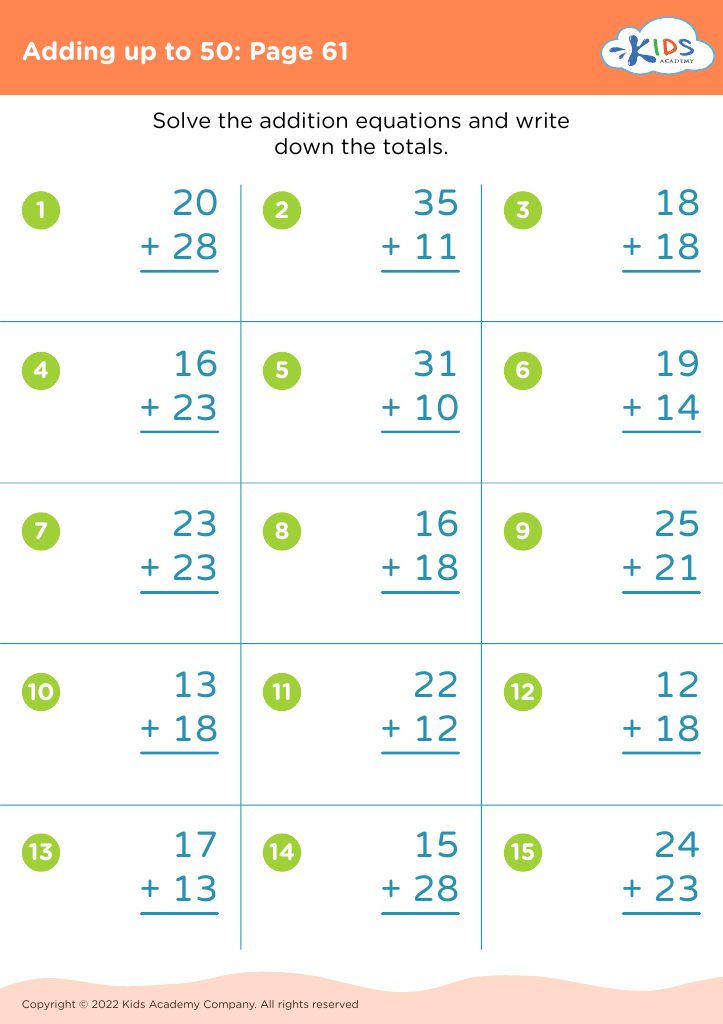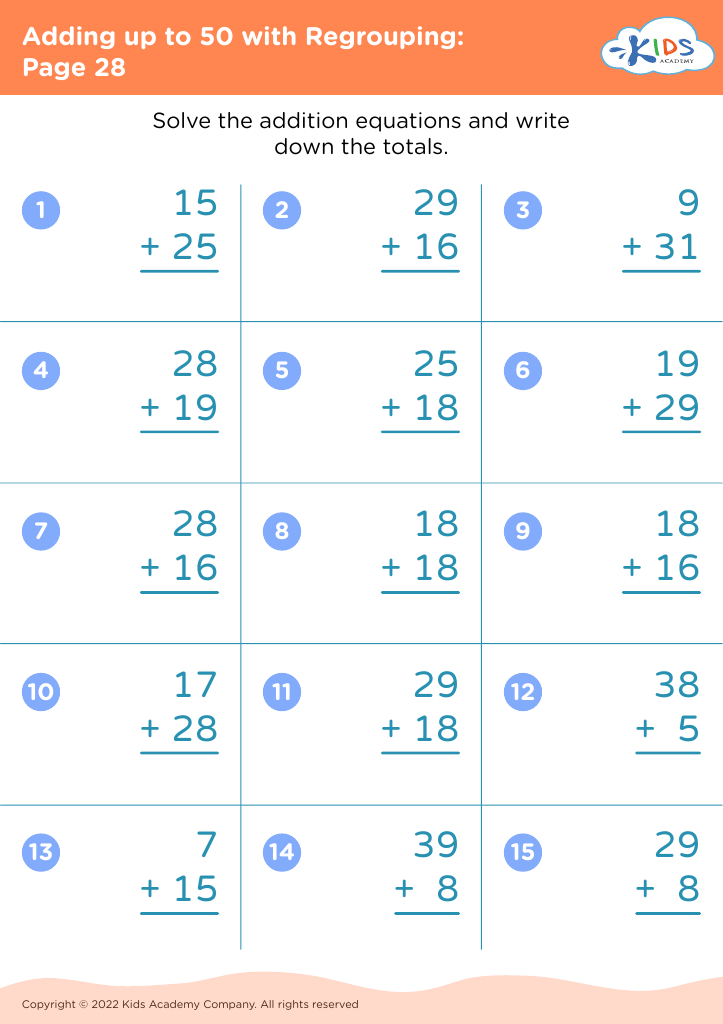Addition skills Adding up to 50 Worksheets for Ages 3-8
7 filtered results
-
From - To
Enhance your child's math fundamentals with our engaging "Addition Skills: Adding Up to 50 Worksheets" designed for ages 3-8. These expertly crafted worksheets help young learners master addition through colorful visuals, fun exercises, and a variety of activities that make learning enjoyable. Children will strengthen their counting abilities and develop confidence in solving addition problems up to 50. Each worksheet is age-appropriate and aligns with educational standards, ensuring a solid foundation in math skills. Perfect for home or classroom use, these worksheets promote independent learning while allowing parents and teachers to track progress easily. Start your math adventure today!
Addition skills are foundational in early education, especially for children aged 3-8, as they lay the groundwork for more complex mathematical concepts. Whether in school or at home, fostering these skills is crucial for several reasons. First, addition is a core component of everyday life; children use these skills to solve problems, share items, and understand wealth concepts. As they learn to add numbers up to 50, they build not only numerical fluency but also critical thinking and reasoning abilities.
Moreover, mastering basic addition boosts a child's confidence and motivation in learning. Early success in math inspires a positive attitude towards the subject, setting a strong trajectory for future learning. Additionally, understanding addition helps develop spatial and logical thinking, which benefits learning in various other subjects, such as science and reading comprehension.
Furthermore, engaging in addition activities encourages social interaction and collaborative play. Teachers and parents can create enjoyable learning experiences, making math a fun and enriching subject. In essence, by prioritizing addition skills for young learners, parents and educators equip children with essential tools for academic success and meaningful life experiences, fostering a love for learning that will benefit them for years to come.






















